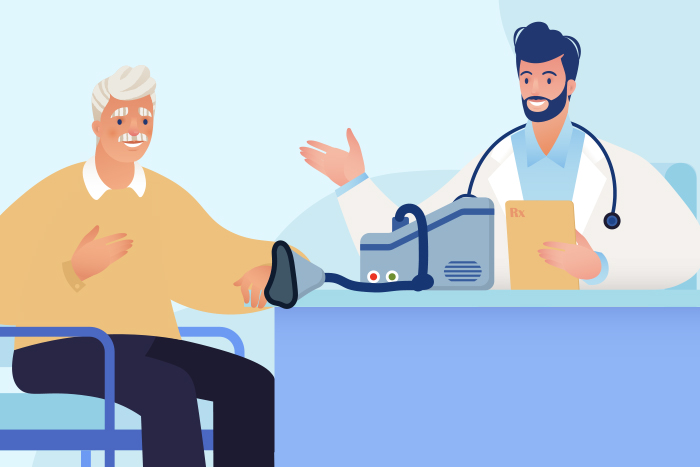Sleep is supposed to help you feel rested and ready for the day. But for many older adults, sleep apnea can get in the way. This condition causes your breathing to stop and start during the night, leading to loud snoring, daytime tiredness, and other health problems.
This article explains what sleep apnea is, how it affects your health, and what you can do about it.
What is sleep apnea?
Sleep apnea is a common sleep disorder where your breathing stops for short periods during sleep. These pauses can last a few seconds to even a minute and may happen many times throughout the night. Your brain usually wakes you up just enough to start breathing again, which keeps you from getting deep, restful sleep.
There are two main types of sleep apnea:
Obstructive Sleep Apnea (OSA): This is the most common type. It happens when your throat muscles relax too much and block your airway.
Central Sleep Apnea (CSA): This is less common. It happens when your brain doesn’t send the right signals to the muscles that control your breathing.
Think of it like a garden hose: if the hose gets pinched or kinked, water can’t flow freely. In sleep apnea, something blocks the flow of air while you sleep.
Recognizing the Symptoms
Many people with sleep apnea don’t know they have it. You might notice the signs yourself, or someone else might notice them while you sleep. Common symptoms include:
Loud snoring
Episodes of stopped breathing during sleep (often noticed by another person)
Gasping or choking during sleep
Waking up with a dry mouth or sore throat
Morning headaches
Difficulty staying asleep
Excessive daytime sleepiness
Difficulty concentrating
Mood changes, such as irritability or depression
If you wake up feeling like you haven’t slept at all, it may be a sign to talk to your doctor.
When to Talk to a Doctor
If you snore loudly, feel tired even after a full night’s sleep, or wake up gasping for air, talk to your doctor. You may need a sleep study, which is often done at home, to find out if you have sleep apnea. The test is painless and tracks your breathing, oxygen levels, and heart rate while you sleep.
Who is at risk for sleep apnea?
Sleep apnea can affect anyone, but certain factors increase the risk:
Age: It’s more common in people over age 65.
Being Overweight: Extra weight, especially around the neck, can make it harder to keep your airway open at night.
Neck Size: A thicker neck can mean a narrower airway.
Gender: Men are more likely to have sleep apnea, though the risk for women goes up after menopause.
Family History: If your relatives have sleep apnea, your chances may be higher.
Other Health Problems: High blood pressure, diabetes, and heart conditions are all linked to sleep apnea.
Potential Complications of Sleep Apnea
If left untreated, sleep apnea can lead to:
High Blood Pressure: Repeated drops in oxygen levels can strain the cardiovascular system.
Heart Problems: Increased risk of heart attacks, strokes, and irregular heartbeats.
Type 2 diabetes: Sleep apnea can increase insulin resistance.
Liver Problems: People with sleep apnea are more likely to have abnormal liver function tests.
Daytime Fatigue: Leading to accidents or decreased productivity.
Sleep-Deprived Partners: Loud snoring can disrupt the sleep of others.
How Sleep Apnea Affects Daily Life
When your sleep is constantly disrupted, it can affect how you feel and function during the day. You may feel:
Tired all the time
Irritable or moody
Foggy or forgetful
Sleep apnea can make it hard to enjoy your favorite activities or keep up with friends and family. It may also raise the risk of accidents, like falling or feeling drowsy while driving.
How is sleep apnea diagnosed?
A healthcare provider may recommend a sleep study, either at home or in a sleep center. This study monitors breathing patterns, oxygen levels, heart rate, and brain activity during sleep to determine if sleep apnea is present.
Treatment Options for Sleep Apnea
The good news is that sleep apnea can be treated. Common treatments include:
Lifestyle Changes: Losing weight, exercising, avoiding alcohol and smoking, and changing sleep positions can help. Learn more about lifestyle changes to manage sleep apnea.
Continuous Positive Airway Pressure (CPAP): This device keeps your airway open by blowing air through a mask while you sleep. It may feel awkward at first, but many people feel better after just a few nights.
Other Breathing Devices: Some people use machines that adjust air pressure automatically (APAP) or use bilevel pressure (BiPAP) for more comfort.
Oral Appliances: A dentist can make a special mouthguard to help keep your airway open while you sleep.
Surgery: In some cases, procedures to remove tissue or reposition the jaw may be recommended.
Treatment for Underlying Conditions: Managing heart conditions or adjusting medications can be beneficial, especially for central sleep apnea.
Your doctor will help you choose the best option based on your health and comfort.
The Bottom Line on Sleep Apnea
Sleep apnea is common, especially as we age. But it doesn’t have to control your life. If you think you may have it, talk to your doctor. Getting treatment and making small changes at home can help you sleep better, feel better, and protect your overall health.
Sources:
National Heart, Lung, and Blood Institute: What is Sleep Apnea?
Mayo Clinic: Sleep apnea

